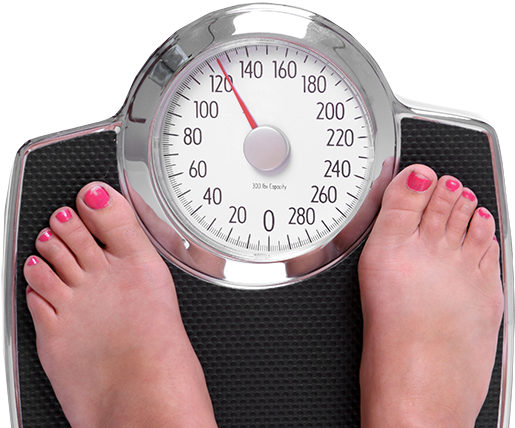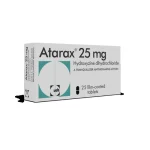Lexapro Weight Loss Stories

Lexapro (escitalopram) is a medication that is commonly used to treat depression and anxiety disorders. While weight loss is not a common side effect of Lexapro, some individuals may experience weight loss while taking this medication due to its effects on appetite and metabolism.
However, it is important to note that weight loss is not a guaranteed or typical effect of Lexapro and that each individual’s experience with the medication may vary. Additionally, sudden or significant weight loss may indicate other underlying health issues and should be discussed with a healthcare provider.
That being said, here are a few personal stories of individuals who have experienced weight loss while taking Lexapro:
• “I have been taking Lexapro for several months to treat my anxiety, and I have noticed a significant decrease in my appetite. As a result, I have lost about 10 pounds without changing my diet or exercise routine. While I am happy about the weight loss, I am also aware that it may not be sustainable and may not be the case for everyone.”
• “I was prescribed Lexapro for depression and anxiety, and I noticed that I was not as hungry as I used to be. I have lost about 5 pounds in the first month of taking the medication, which was a welcome surprise. However, I am also aware that weight loss is not a guaranteed effect of Lexapro, and that it may not be a long-term solution for weight management.”
• “I have been taking Lexapro for over a year, and while I did not experience weight loss initially, I have noticed that I am more mindful of what I eat and tend to make healthier choices. This has resulted in gradual weight loss over time, but I attribute it more to my own efforts rather than the medication itself.”
While there may be some anecdotal reports of individuals experiencing weight loss while taking Lexapro, it is important to note that these experiences may be influenced by a variety of factors, including changes in appetite, diet, exercise, and metabolism. Additionally, sudden or significant weight loss may indicate other underlying health issues and should be discussed with a healthcare provider.
It is important to approach information on medication effects with caution and to consult with a healthcare provider for personalized advice and guidance. Making changes to medication or dosages without medical supervision can be dangerous and may lead to serious health consequences. It is crucial to prioritize safety and to work with a healthcare team to find the best treatment plan for individual needs and goals.
Side Effects
While Lexapro can be an effective treatment option, like all medications, it can also have side effects. In this article, we will explore some of the common and rare side effects associated with Lexapro, as well as how to manage them.
Common Side Effects
The most common side effects of Lexapro include:
1. Nausea: Nausea is a common side effect of Lexapro, especially in the first few weeks of treatment. This can often be managed by taking the medication with food or reducing the dosage.
2. Headache: Headaches are another common side effect of Lexapro. Over-the-counter pain relievers can often help manage this symptom.
3. Drowsiness: Drowsiness is a common side effect of Lexapro, and it can also impair cognitive function. It is important to avoid driving or operating heavy machinery until the individual knows how the medication affects them.
4. Insomnia: While drowsiness is a common side effect, some individuals may experience insomnia or difficulty sleeping while taking Lexapro. This can often be managed by taking the medication earlier in the day or adjusting the dosage.
5. Sexual side effects: Lexapro can also cause sexual side effects, such as decreased libido or difficulty achieving orgasm. These side effects can be difficult to manage and may require medication adjustments or changes.
Rare Side Effects
While rare, there are some more serious side effects associated with Lexapro that individuals should be aware of. These can include:
1. Suicidal thoughts or behaviors: Like many antidepressants, Lexapro can increase the risk of suicidal thoughts or behaviors, especially in children, teenagers, and young adults. Individuals should be monitored closely for any changes in mood or behavior while taking the medication.
2. Serotonin syndrome: Serotonin syndrome is a rare but serious side effect that can occur when there is too much serotonin in the body. Symptoms include agitation, confusion, rapid heart rate, and muscle stiffness. If an individual experiences these symptoms, they should seek medical attention immediately.
3. Bleeding: Lexapro can also increase the risk of bleeding, especially in individuals taking blood thinners or NSAIDs. It is important to discuss the risks and benefits of taking Lexapro with a healthcare provider if an individual is taking other medications that increase the risk of bleeding.
Management of Side Effects
If an individual experiences side effects while taking Lexapro, there are several strategies that can be used to manage them. These include:
1. Adjusting the dosage: Often, adjusting the dosage of Lexapro can help manage side effects. This should only be done under the supervision of a healthcare provider.
2. Changing the time of day the medication is taken: Depending on the side effect, changing the time of day the medication is taken can help manage symptoms. For example, taking the medication earlier in the day may help with insomnia.
3. Taking the medication with food: Taking Lexapro with food can help reduce nausea.
4. Taking medication breaks: In some cases, taking a break from the medication can help manage side effects. This should only be done under the supervision of a healthcare provider to avoid withdrawal effects.
5. Adding additional medications: In some cases, adding additional medications, such as a medication to help with sexual side effects, can help manage symptoms.
Conclusion
Lexapro is a commonly prescribed medication for depression and anxiety disorders. While it can be an effective treatment option, some individuals may experience weight loss while taking this medication due to its effects on appetite and metabolism. It is important to be aware of the potential side effects of Lexapro and to work with a healthcare provider to manage them. If an individual experiences any serious side effects, they should seek medical attention immediately.





